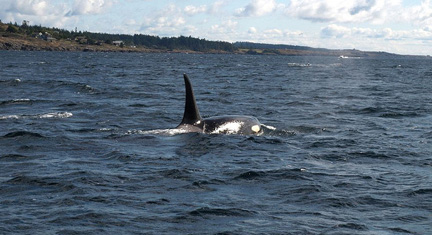With vomiting harbour porpoises becoming stranded in Patricia Bay, humpback whales colliding with boats off the north Island, dead whales found drifting near Tofino, and poison-laden orca starving off Victoria, our coastal wonderland seems to be anything but for wildlife residents.
So much of what we do to the ocean remains hidden from sight. We flush our toilets into it, let the wind blow our garbage into it, dump our bilges into it, wash our streets into it. And despite receiving our filth for more than 150 years, the sea around us continues to reflect sunshine, sky and shorelines.
The ocean holds its secrets close.
Fortunately, we’re getting better—slightly better—every year at tracking what goes on in the watery depths. Complex high-tech advances and tried-and-true low-tech applications help us plumb more of Davy Jones’s locker each year. We use satellites, sea-floor fibre-optic arrays, and next-generation genetic decoding, as well as the usual see-’em-and-count-’em census taking to peek beneath the waves.
Continue reading this editorial in the Victoria Times Colonist….
More information:
New maps show how shipping noise spans the globe
Trends in the Status of Native Vertebrate Species in B.C. (1992-2012)
Rescued porpoise recovering slowly at Vancouver Aquarium
Massive skeleton of young humpback whale destined for Royal B.C. Museum
To scientists, dead killer whale a lucky find


You must be logged in to leave a reply.